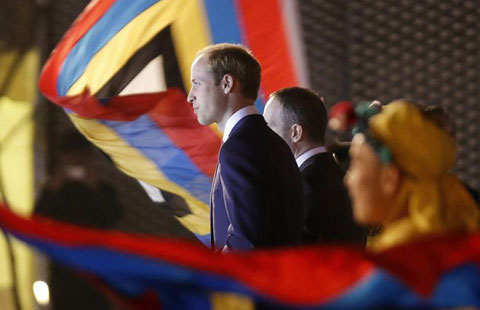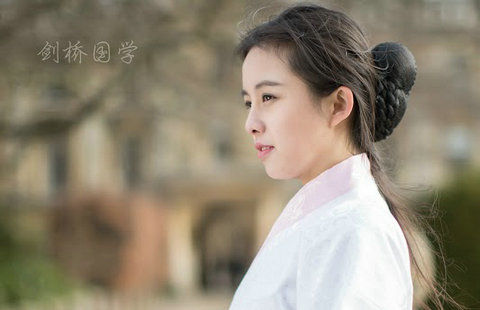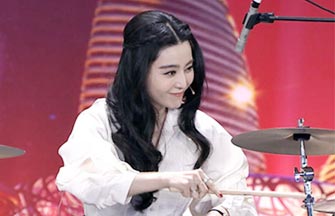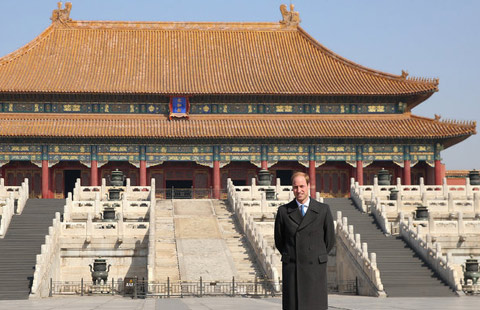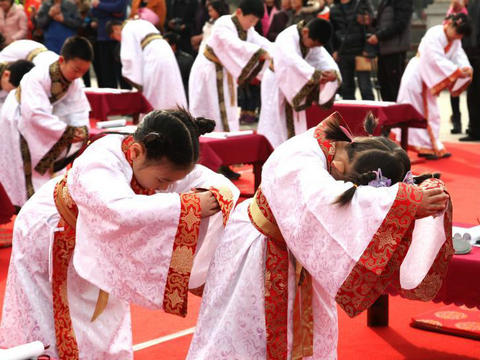Chinese literature deserves global appreciation
By Cecily Liu ( chinadaily.com.cn ) Updated: 2015-03-06 06:33:36Chinese literature is unique in its style, form and content, and should be better appreciated by a global audience, says Swedish linguist Göran Malmqvist.
"Reading Chinese literature will teach you what good literature should be. I think Chinese poetry should be taught to young children in school, that will give them a good start in life," Malmqvist says.
Malmqvist was speaking at this year's LSE SU China Development Forum in February, which is organized by the China Development Society of London School of Economic and Political Science's student union.
During a speech on the topic of Chinese culture going global, Malmqvist explained the importance of translation in facilitating Chinese literature's acceptance by readers internationally.
In particular, he said that a professional translator should be one who stays true to the original text, rather than being selective in the translation process.
"Translation is not imposing one's self belief on literature. He should be a highly skilled craftsman, and if the translation involves editing, then he must imitate the author of his original work. The translator must be keenly aware of this responsibility," he says.
Malmqvist says despite the obvious challenge of translating Chinese literature into Western languages, it is possible, with poetry being the exception as it is very difficult to capture the meaning and poetic devices such as rhythm and rhyme in the translation.
"Much of the poetry from the Tang Dynasty and Song Dynasty have tonal aspects that are difficult to be translated. Apart from such poetry, no Chinese literature cannot be translated into Western language if the translator is an honest worker and craftsman," he says.
To facilitate good translation, it would be beneficial for the Chinese government to invest into training good quality translators, and invest into encouraging publishing houses to publish high quality Chinese literature overseas.
"The Chinese government should organize symposiums and conferences on translation and invite Western and non-Chinese translators to participate, so they may learn from each other," he says.
He says the Chinese government should take a lead on this process because the demand for good quality literature cannot be just left to the market. This is because often sensational modern novels as opposed to classic texts have much higher market demand, and the value of good translation is not reflected fairly in the market.
An example of what he considers to be poor literature is Shanghai Baby, a semi-autobiographical novel written by Chinese author Wei Hui, originally published in China in 1999 and subsequently translated into English and other languages with positive reception.
"Any Western publisher would jump at that, they know people enjoy reading sensational novels from China, they don't enjoy a good book. The problem is all over the world, publishers would happily accept trash that sells and not good literature that doesn’t sell," he says.
Therefore it is important for the Chinese government to take the initiative to encourage the translation of good Chinese literature in the West, so that they are at least made available for anyone who wish to enjoy them, he says.
Malmqvist was born in 1924 in Sweden. Following introductory studies of Chinese under Sinologist Bernhard Karlgren at Stockholm University, Malmqvist studied in China in 1948 – 1950.
His international research career started with a lectureship in Chinese at the University of London in 1953 - 1955. He was then appointed Swedish cultural attaché in Peking and worked in China in 1956–1958.
This was then followed by various appointments, which enabled him to travel to China or teach in overseas academic institutions with a focus on China.
In 1965, Malmqvist was called to Stockholm as Professor of Sinology, particularly Modern Chinese, at the newly established Section of Chinese in the Department of Oriental Languages at Stockholm University.
In 1985, Malmqvist was admitted to the Swedish Academy, which is responsible for choosing the Nobel Laureates in Literature. In this capacity, he participated in the process of awarding the 2012 Nobel Prize to Chinese author Mo Yan.
However, Malmqvist was criticized for a possible conflict of interest, as he had close personal and economic relations to Mo Yan. Malmqvist had translated several of Mo Yan's works into Swedish and published some through his own publishing house.
Reflecting on this experience, Malmqvist says that he sees Mo Yan's work as good quality literature and believes it is unfair to bring other factors into criticism of either Mo or himself.
"The award's only criterion is literary excellence. The people who criticize Mo Yan should read his works. To my mind, there is no Chinese writer who is as brave as Mo Yan in coming to criticize the dark side of human society, corruption, greed for eating and drinking, he is braver than most," he says.
|
|
|
|
|
|
|
|
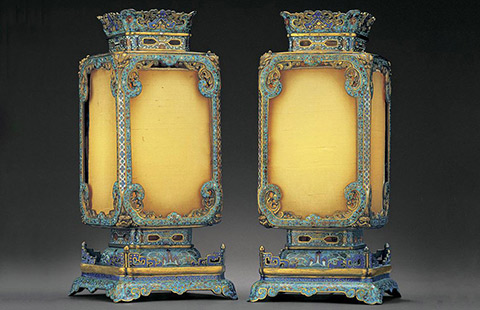
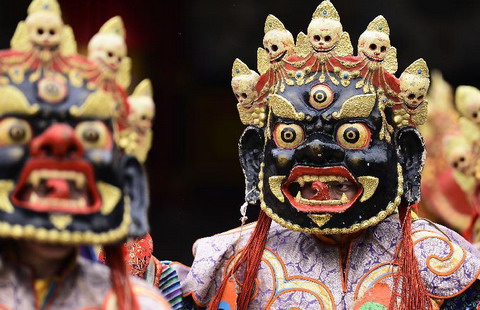
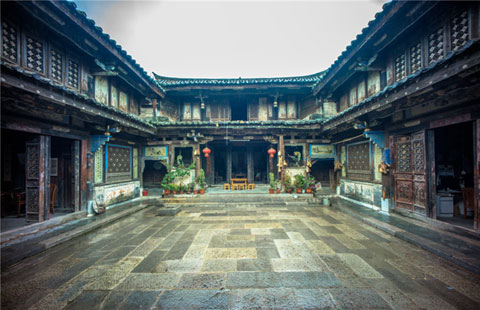
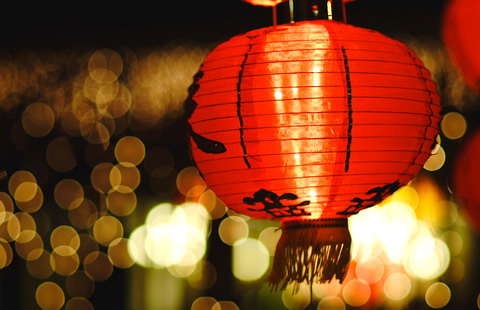


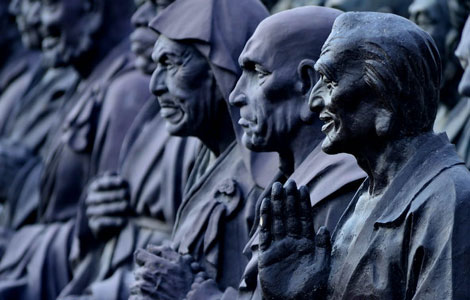
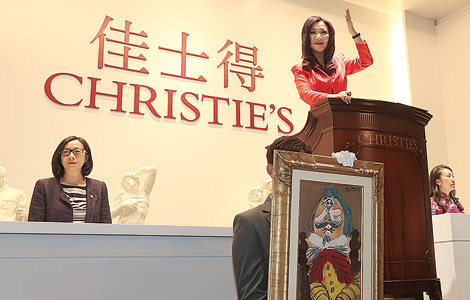



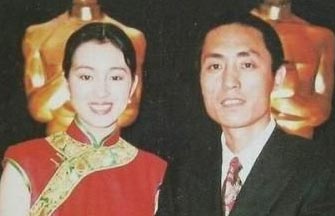


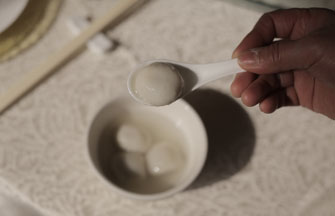
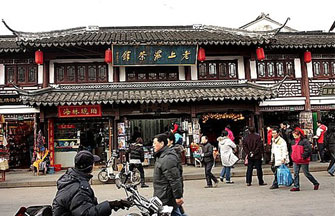


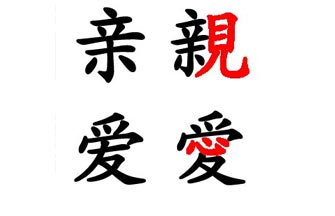
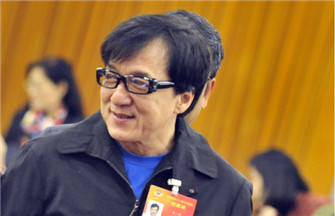
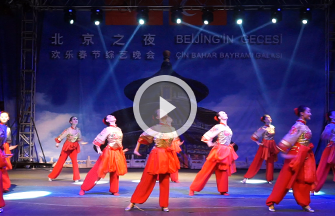


 Raymond Zhou:
Raymond Zhou: Pauline D Loh:
Pauline D Loh: Hot Pot
Hot Pot Eco China
Eco China China Dream
China Dream China Face
China Face
